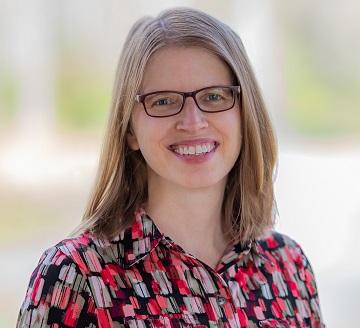August 23, 2019
by Tina Arnoldi
 Burnout is a word commonly thrown around. People burn out from work and family obligations. From media consumption. From commitments.
Burnout is a word commonly thrown around. People burn out from work and family obligations. From media consumption. From commitments.
Recently, the World Health Organization (WHO) updated its definition for the ICD-11 to identify burnout as a “syndrome”, tying it to "chronic workplace stress that has not been successfully managed." (In the ICD-10, it was a “state of vital exhaustion”). I asked clinicians if they see a rise in burnout symptoms and what the new definition could mean for treatment (and stigma) now that it’s recognized as a syndrome.
Jessica "Jess" F.B. Jefferson, LCSW believes “WHO’s recognition of burnout as a syndrome tied to workplace stress now provides permission for helpers and healers to bring their struggle to the surface and seek help and healing for themselves. “
Dr Kate Tulenko, MD, MPH, MPhil, FAAP, CEO of Corvus Health, sees a potential benefit when it comes to health insurance. “More health insurance companies may now pay for its treatment. Defining it as a specific, codable syndrome, also make it easier for researchers to organize around and share information on developing and testing treatments,” says Tulenko.
Viewing burnout as a serious problem though is not new. “Researchers and mental health professionals have long accepted burnout as a serious problem for many Americans. It is because the term is thrown around so loosely that it loses some of the gravity of how serious burnout can be on your physical health”, says Kirsten Fescoe, Resility Health.
Several professionals commented on the implications for stigma. “On a psychological level,” says Tulenko, “it’s helpful for people who suffer from burnout because now society understands that it’s a real condition and not in their heads. Healthcare suffers one of the highest rates of burnout due to the stressful work conditions and often high rates of educational debt among health workers.
Nikola Djordjevic, MD adds that “breaking the stigma around burnout is important and classifying it as a syndrome is one good way of doing it. It’s important to send a message to people that they’re not weak and worthless if they feel burned out and to find a legitimate name for what they’re feeling. To break any stigma you need to recognize what’s happening and start talking about it.”
Although the term burnout is heard in relation to work, Lana Banegas LMFT, a marriage counselor, sees this happening in the home too. She notes that “although the ICD-11 describes burnout as ‘chronic workplace stress that has not been successfully managed’, I see burnout in stay-at-home moms as much as in top executives of large corporations. Burnout happens when we do not engage in adequate self-care, practice boundary setting, and when we focus on our performance rather than on our relationships. Burnout is on the rise, due to social pressure to perform and the expectation to succeed in all areas of life - to be awesome across the board - in career, family life, social life, and physical appearance.”
Banegas believe burnout depends on “one’s ego strength, coping skills, and unique personality traits. Such traits and skills affect our ability to set healthy and clear boundaries with others, manage time well, and produce the messages we send ourselves when we fail or succeed. They also create the expectations and drives we have for ourselves.”
For anyone experiencing burnout, whether at home or at work, Jefferson empowers clients by providing “the tools, liberty and permission to be a person first, to unpack their perception of and feelings about how others view them in their role as a helper or healer, and to create a space where they experience support and acceptance during their own healing process. I teach them that it is imperative that they save themselves first—it is only when you are well and functioning optimally that you can effectively save and serve others.”
Whether receiving guidance from a professional or practicing it at home, Dr. Donese Worden, NMD, points out that self-care is not complicated. “We need time to heal and decompress, thus some of the best treatments are meditation, music, and vacations. Even a five-minute prayer or meditation in the morning before you start your day and another one at night to calm the mind before sleep can make big changes.”
Regardless of one’s profession or home environment, Banegas believes everyone can be empowered to avoid burnout through self-care. She says “to guard ourselves against burnout, we resolve past issues, strengthen our sense of self, learn how to enforce healthy boundaries with others, care for our selves and prioritize what is most important in life: relationships not achievement or social accolades.” The hope is that recognition from WHO - and health insurance providers - will increase treatment possibilities when individual self-care practices are not enough to recover from burnout.
About the Author
 Tina Arnoldi
Tina Arnoldi
Tina Arnoldi, MA is a marketing consultant and freelance writer in Charleston SC. Learn more about her and connect at TinaArnoldi.com